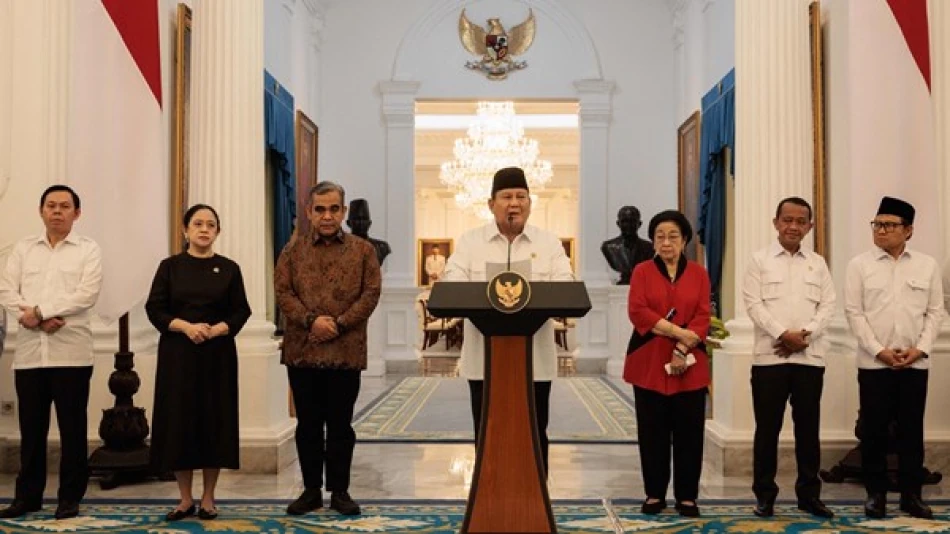
Indonesian President Addresses Violent Protests
Indonesia's President Labels Deadly Protests as "Treason and Terrorism" Following Police Killing
Indonesian President Prabowo Subianto escalated his rhetoric against nationwide demonstrations on Sunday, condemning violent protests as acts of "treason and terrorism" after at least three people died in fires set by demonstrators. The unrest, sparked by a police vehicle fatally striking a motorcycle taxi driver in Jakarta, represents the most serious domestic challenge to Subianto's presidency since he took office.
Presidential Response Signals Hardline Approach
Speaking from the presidential palace in Jakarta, Subianto drew a sharp distinction between legitimate protest and criminal activity. "The right to peaceful assembly must be respected and protected. But we cannot deny evidence of unlawful acts that violate the law and amount to treason and terrorism," he declared.
The president's use of terrorism charges reflects a familiar pattern in Southeast Asian politics, where governments often invoke national security laws to suppress civil unrest. This approach mirrors tactics used by regional neighbors when facing large-scale protests, though it risks further inflaming tensions.
Deadly Escalation Transforms Local Incident into National Crisis
What began as anger over the death of a 21-year-old motorcycle taxi driver has evolved into Indonesia's most significant civil unrest in years. The protests, which started Monday and spread across major cities including the capital, reached a deadly climax when demonstrators set fire to a local council building in Makassar, South Sulawesi's largest city, killing at least three people.
Seven police officers have been suspended in connection with the original incident, and Subianto promised a "transparent" investigation. However, the president's harsh rhetoric suggests his administration may prioritize order over addressing underlying grievances about police accountability.
Testing Indonesia's Democratic Institutions
The crisis presents an early test for Subianto, a former military general whose past includes allegations of human rights abuses during Indonesia's authoritarian era under Suharto. His response to these protests will likely define his presidency's relationship with civil society and democratic norms.
Indonesia's transition to democracy following Suharto's 1998 fall was partly driven by massive student protests. The current unrest, while smaller in scale, taps into similar concerns about state accountability and the use of excessive force by security services.
Regional Implications for Protest Management
Subianto's hardline stance contrasts with more measured responses to recent protests in neighboring countries. While Thailand and Malaysia have generally avoided inflammatory rhetoric during civil unrest, Indonesia's approach suggests a return to more authoritarian methods of crowd control.
The labeling of protests as terrorism could set a concerning precedent for Southeast Asia, where democratic institutions remain fragile and governments frequently struggle to balance security concerns with civil liberties. International observers will likely monitor whether Indonesia's response influences similar tactics elsewhere in the region.
Most Viewed News

 Layla Al Mansoori
Layla Al Mansoori






